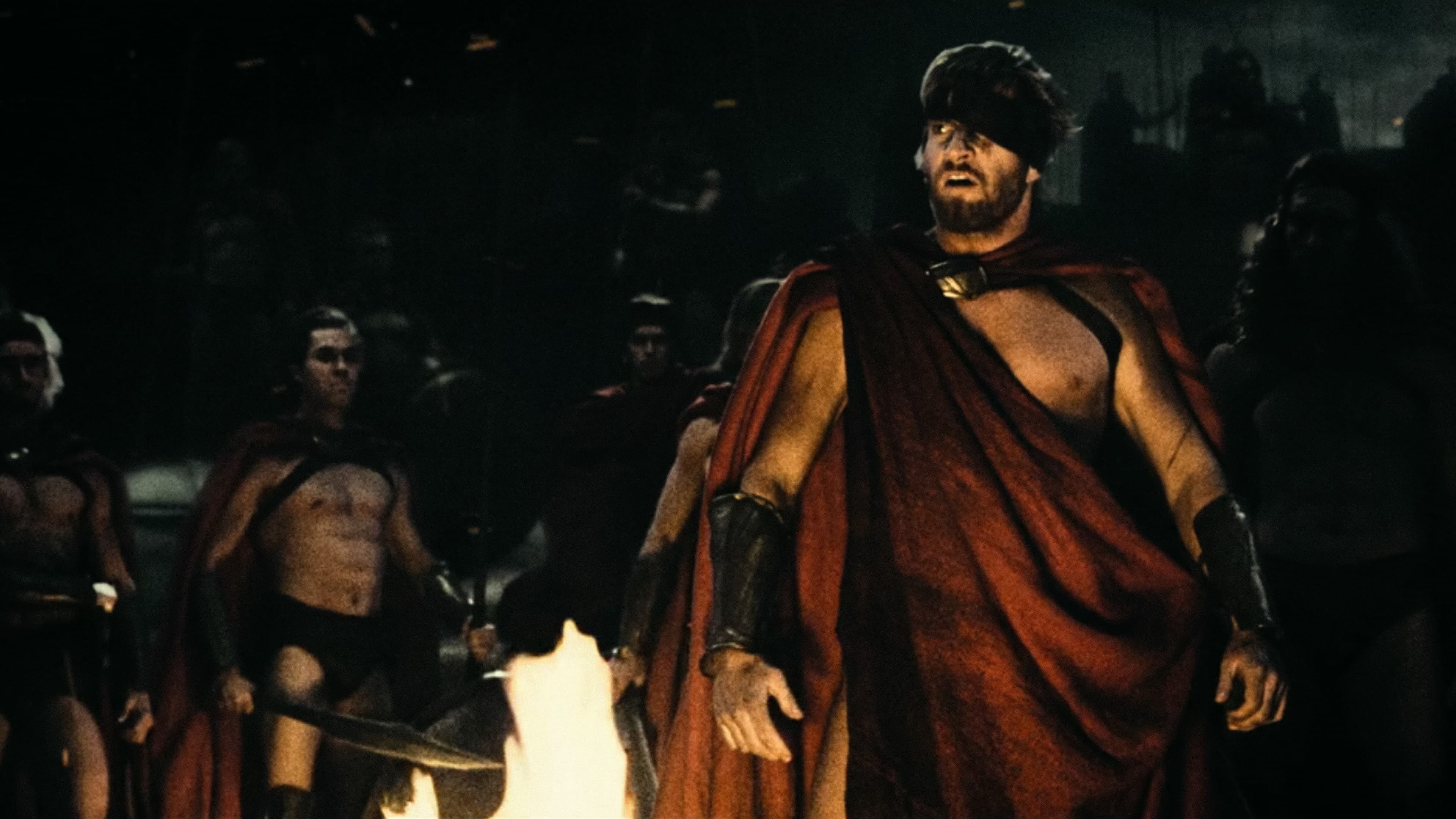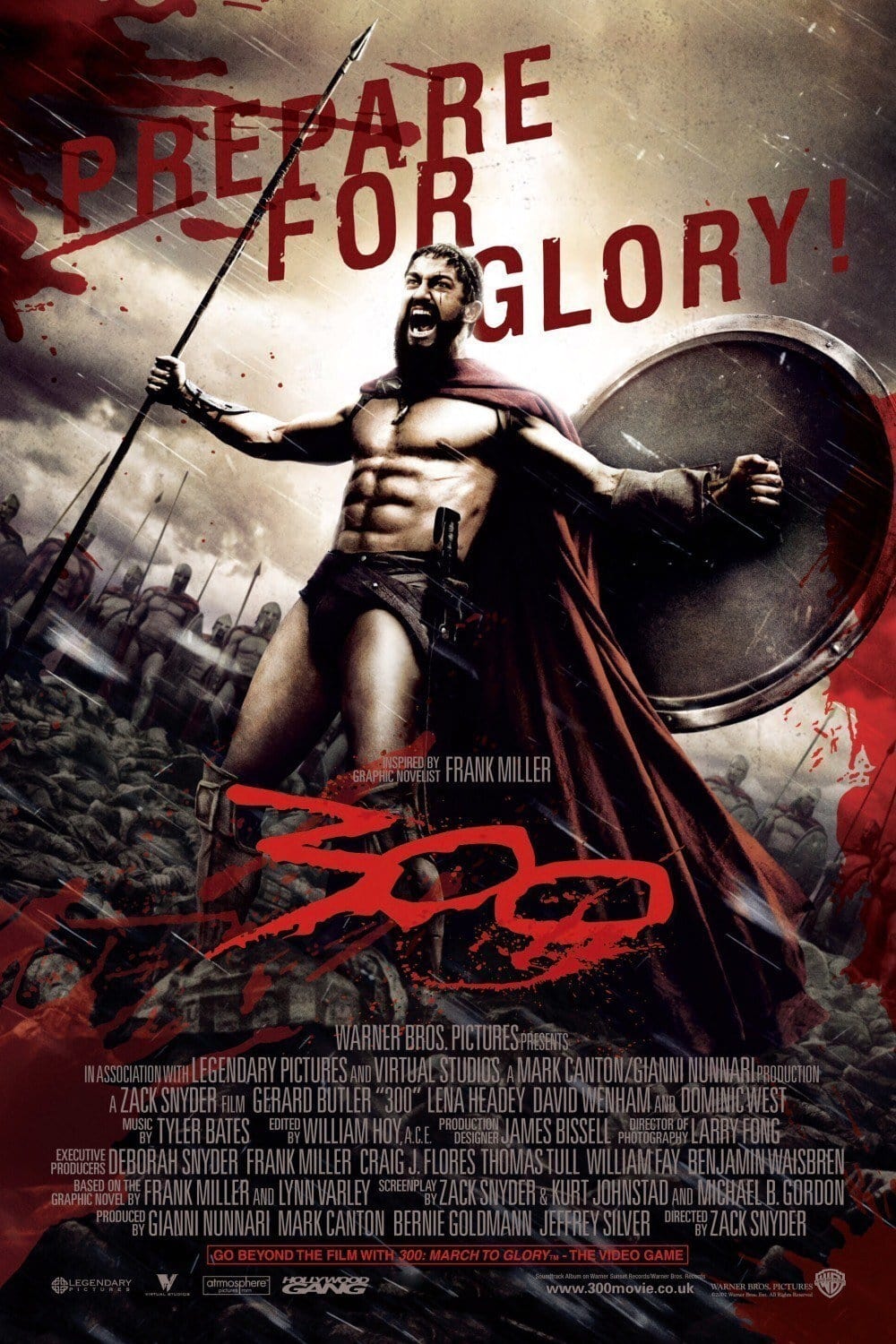"A new age has begun, an age of freedom. And all will know that 300 Spartans gave their last breath to defend it."
It is hard to describe a movie from the past two decades that has had as much impact on young men as 300. Even when we compare it to films like Fight Club, Drive, or John Wick, 300 seems to speak in a way that almost any man is captured by its aesthetics and mythology. To dismiss a movie, especially one with such magnitude and power as "popcorn entertainment," is at best, ignorant, and at worst, a facilitator of its message and, in the case of this film, its cryptofascist message.
Let us be clear for a second: movies, like any other art form, are not created in a vacuum by soulless and thoughtless people. The zeitgeist, culture, time period, and events all affect the media we consume, produce, create, and enjoy. German cinema from the 1930s and 40s served as a way to understand the Führer project and the glory the German people possess, and Italian Neo-realism depicts a post-apocalyptic world where misery and tragedy are always present among its population. The United States is not immune to such tendencies, as the entire Hollywood system presents themes and ideas, all forged by the cultural trends of the time.
In this aspect, 300 is a very 2000s movie, a project created in the aftermath of the 9/11 terrorist attacks and the war on terror, as well as a general sentiment of edginess that went beyond the 2010s. Films created at the time present us a way of living in anxiety, hyperviolence, and protection, where nothing is safe from destruction and bending the law and our morals is a must if we want to do what is right. Films about an increase and overstepping of the government espionage and security systems (Minority Report, The Dark Knight), the threat of an attack from within (War of the Worlds, Transformers), the glorification of the military and their missions across the eras, and an increase of anti-Muslim sentiment that seemingly never went away.
With this in mind, what does 300 tries to convey? As a first-time watcher, I must admit I was left a bit confused, but I can safely assume that their point is to create a new myth, one that is relevant to young adults and makes them feel like they own the world, and within this framework, the movie does portray what we later got to know as "toxic masculinity" in a way that not only emboldens its attitudes but, at times, makes them desirable... and it is very often that these attitudes are more aligned with right-wing ideologies. In a Tweet expressed by Minmoud, she states the following:
"The right has enjoyed overwhelming successes by being perfectly aligned with mass society on gender. Every right-wing male feels deep pride and joy at imagining being a workslave or cannon fodder, a glorious death on the field."
I do not believe this statement is inaccurate to what some people take from 300, the Spartans, or the Roman Empire as a whole. The film is portraying the birth of a new civilization, the Western civilization, where men can defend their wives, family, and nation from degeneracy, where the deaths of those who will go and defeat the barbarians will not only be remembered as patriots and have their lives mean something but also aid in the creation of the perfect world, and while this is not enough to be considered fascist, the Spartan society depicted in the film not only is explicitly homophobic, eugenistic, and sexually aggressive with its women, it also possesses a racial aspect that I find deeply problematic, where all the enemies are Asian, Muslim, or African and the "good people" are white Europeans.
Arguments for why this film is not endorsing these fascistic elements range from the simplistic "it is just a movie" and "it is satire." I could at least give the benefit of the doubt to the people who claim it is satire; after all, if anything, I agree that Zack Snyder was probably a little bit edgy around the making of the movie, and his later work has shown me that while he lacks the understanding for the complexity of human conflict, he has demonstrated a deep connection with revolutionaries and anti-racism. However, nothing in the text of the movie implies it is a critique of its themes, and contrary to Starship Troopers, this film and its ending clearly want us to believe they are the good guys; they are the ones who created with their sacrifice a new world of science, reasoning, and purity.
Can we enjoy movies even if we find the themes dangerous? I believe we can, and while I particularly can't recommend this movie, especially not to any man I know, I can see the value in its visual language and adaptation of a printed medium into film. Sadly, what I am left with is a two-hour movie filled with violence and a call to action, all under the guise of protecting the purity of our land and people. I can't think of a worse way to spend time.


Comments
Post a Comment